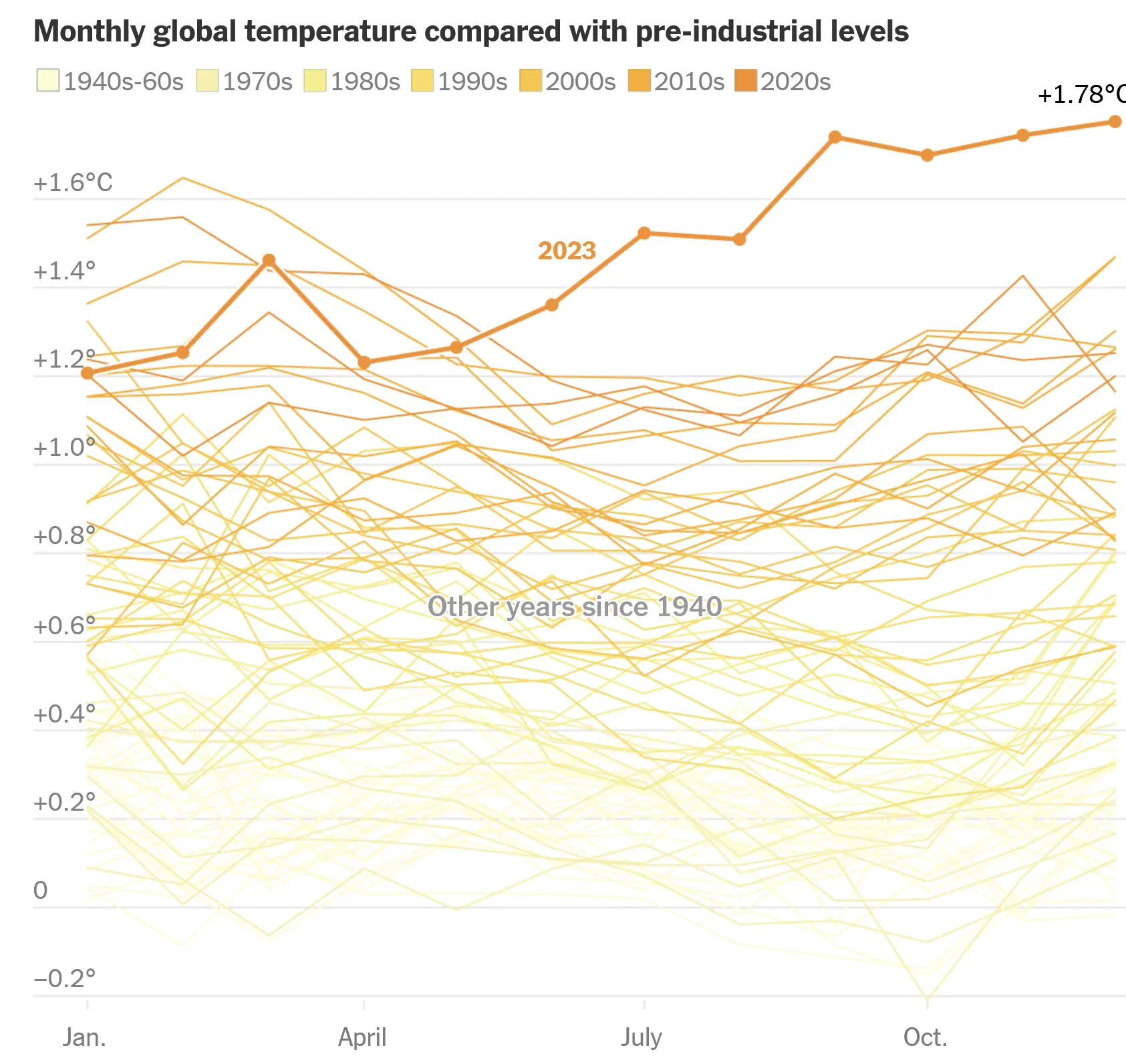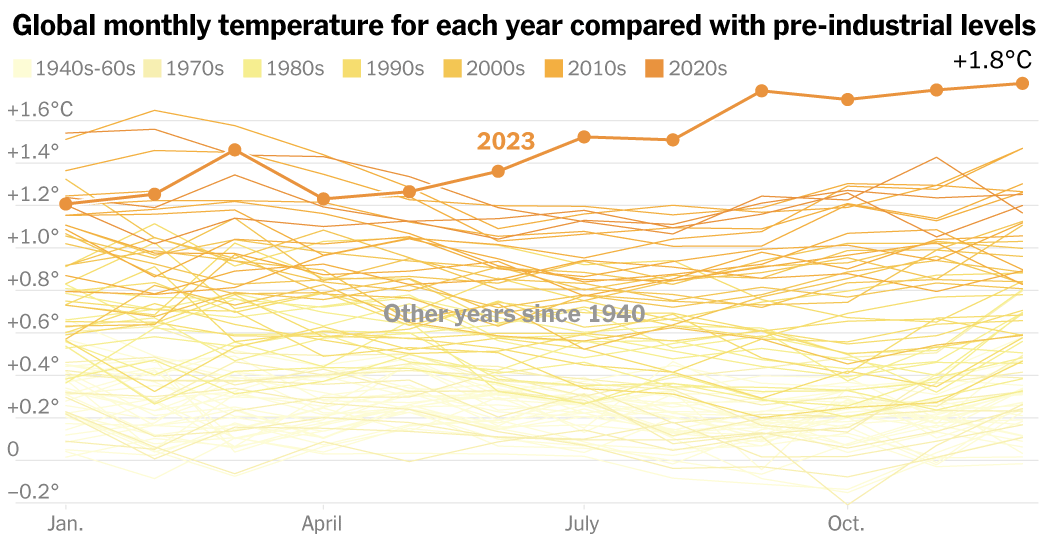- cross-posted to:
- nyt_gift_articles@sopuli.xyz
- climate@slrpnk.net
- cross-posted to:
- nyt_gift_articles@sopuli.xyz
- climate@slrpnk.net

To be honest they couldnt chose any worse color palette. They should have not chosen yellow, darker yellow and orange.
Probably used a color palette calibrated to use the blue end of the spectrum for the cooler temperatures since the late 1800s. Those low temperatures have stopped happening.
There’s no probably. The legend clearly labels the colors to correlate to decade. It’s not related to temperature directly.
Hopefully mostly because of the El Nino, otherwise we’re looking at a pretty drastic increase in rate of temperature rise.
Politically it’s good though and I hope we exceed+2 degrees this year so that we once and for all can conclude that humanity completely botched that goal and maybe, just maybe redouble our efforts to help change course.
Still, El Niño happens cyclically every few years, and this dataset spans decades. There are no other years in there similar to 2023….
I know, I merely meant the +0.4-0.6 increase compared to 2021/22 which also were record hot.
The temperature rise could exceed 10• and nothing would be done about it.
We’d absolutely do something about it — die!
And El Niño itself is driven by ocean temperatures. El Niño isn’t the cause, it’s the name of the effect.
Yes, well personally I didn’t experience it so it is clearly fAkENeWs
there is slushy kinda snow in january in chicago so how can global warming exist! checkmate environmentalists!
deleted by creator
It’s not about ‘fucked/not fucked’ but a matter of degree.
We’re at the point where we go into what is essentially a minefield where we’ll see individual ecosystem components fail. We don’t know exactly when each of those will happen, but we do know that every 1/10 of a degree of warming we can avoid sharply lowers the risk from here on out.
every 1/10 of a degree of warming we can avoid sharply lowers the risk from here on out.
So… we’re extra, all-the-way, hopelessly fucked.
We’re at the point we’re pretty bad things happen, but not yet at the point where they’re bad enough to take down civilization. Acting quickly will keep it from getting that bad
Unfortunately, humans tend to defer action to prevent future catastrophe until bad things are presently happening or have happened. And they will defer longer when more immediate personal interest comes into play or if another immediate threat exists, like being fired and becoming homeless as a result of actively protesting.
Since climate change isn’t significantly affecting rich people monetarily or otherwise, and because of human nature, including greed, selfishness, cowardice, I am skeptical we are going to correct fast enough.
I hope I am wrong and certain people in power wake up and change tack. We still have a chance to avert unprecedented disaster.
There has started to be change. The US and EU are actually cutting emissions already, and it looks like China is about to.
It’s that we’re not cutting emissions to zero quickly enough yet. That’s going to take a lot of work to make it happen.
This is the best summary I could come up with:
Averaged across last year, temperatures worldwide were 1.48 degrees Celsius, or 2.66 Fahrenheit, higher than they were in the second half of the 19th century, the European Union climate monitor announced on Tuesday.
Every tenth of a degree of global warming represents extra thermodynamic fuel that intensifies heat waves and storms, adds to rising seas and hastens the melting of glaciers and ice sheets.
The 2022 eruption of an underwater volcano off the Pacific island nation of Tonga spewed vast amounts of water vapor into the atmosphere, helping trap more heat near Earth’s surface.
Recent limits on sulfur pollution from ships brought down levels of aerosols, or tiny airborne particles that reflect solar radiation and help cool the planet.
Another factor was El Niño, the recurrent shift in tropical Pacific weather patterns that began last year and is often linked with record-setting heat worldwide.
But scientists will need to continue studying the data to understand whether other factors might be at work, too, said one of the researchers, Karina von Schuckmann, an oceanographer at Mercator Ocean International in Toulouse, France.
The original article contains 876 words, the summary contains 180 words. Saved 79%. I’m a bot and I’m open source!
Uh oh











